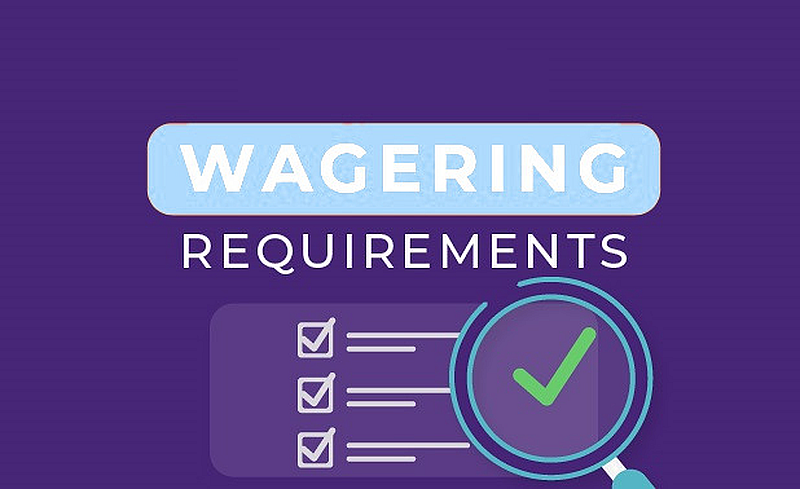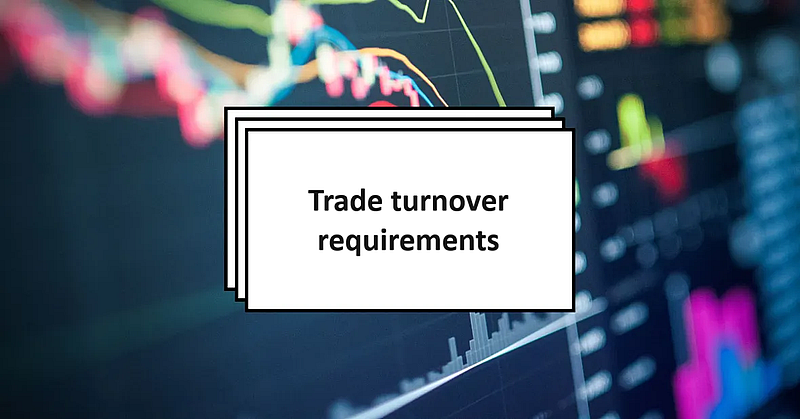Broker Bonuses and Promotions: What Is Really Worth Paying Attention To
Contents
In the world of forex trading, competition between brokers is intense. To attract new clients and retain existing ones, companies often resort to various marketing strategies. One of the most popular tools in this battle for traders is bonuses and promotions.
They play a significant role in attracting clients. They create the illusion of additional benefits, promising traders “free” money or improved trading conditions. These offers can be quite enticing, especially for beginner traders who seek to maximize their trading capital or gain an advantage at the start.
However, despite the apparent attractiveness, it is important to approach the evaluation of such offers critically. Behind the flashy advertising slogans and generous promises often lie terms and conditions that can significantly reduce the real value of the bonus or even create additional risks for the trader. A critical approach to evaluating bonuses and promotions is necessary for several reasons:
- Capital protection: Some bonuses may push a trader towards excessive risk or deviation from their trading strategy.
- Understanding the real benefit: Impressive figures may hide complex conditions for turnover or withdrawal of funds.
- Choosing a reliable broker: Excessively generous bonuses may indicate the unreliability of a broker attempting to compensate for the shortcomings of their services.
- Maintaining financial discipline: Bonuses should not be the main factor in choosing a broker or making trading decisions.
Let’s consider the different types of bonuses and promotions offered by forex brokers, discuss what to pay attention to when evaluating them, and how to derive the maximum benefit from these offers while avoiding potential pitfalls.

Types of Bonuses and Promotions by Forex Brokers
Forex brokers offer a variety of bonuses and promotions, each with its own unique features. There are several main types.
Welcome Bonuses
These are incentives for new clients, usually provided when opening the first account. It can be a fixed amount or a percentage of the first deposit. For example, a broker might offer a 100% bonus on the first deposit up to $1000. The goal is to attract new traders and give them additional funds to start trading.
Deposit Bonuses
These are given when adding additional funds to the account. They can be one-time or regular. For example, a 20% bonus on every deposit of $500 or more. These bonuses encourage clients to increase their trading capital and trade more actively. Pocket Option offers a 50% bonus on the first deposit starting from 50 USD (bonus up to 5,000 USD). RoboForex also has a bonus on the first deposit – 30 USD.

No-Deposit Bonuses
These are offered without the need to deposit personal funds. Usually, these are small amounts ($5-$50) that allow traders to start trading without risking their capital. The aim is to attract beginners and allow them to try real trading without financial investment.
Cashback and Loyalty Programs
These involve returning part of the spread or commission in the form of cash or points. For example, a 10% cashback on all trades or accumulating points that can be exchanged for real money. These programs are aimed at retaining clients and encouraging more active trading. For example, Alpari has a loyalty program called Cashback. It allows clients to earn ALP bonus points for various actions such as funding their accounts and opening trades. These points can be exchanged for real money, fund compensation, or discounts. Clients can increase their status by raising the total balance of their accounts and performing active operations on the platform. Thus, the Alpari Cashback program provides clients with the opportunity not only to benefit from trading operations but also to significantly reduce costs and receive additional bonuses and privileges depending on their activity and balance.
Contests and Tournaments
Competitions among traders with cash prizes or other rewards. They can be held on demo or real accounts. For example, a monthly contest with a prize pool of $10,000 for the top 10 most profitable traders. The goal is to increase trader activity, create excitement, and attract attention to the broker.
Each type of bonus has its advantages and potential drawbacks. Welcome and no-deposit bonuses may be attractive to beginners but often come with strict wagering conditions. Deposit bonuses and cashback programs are usually more beneficial for active traders with larger capital. Contests may interest experienced traders willing to take on increased risk for a substantial reward.
When choosing a bonus, it is important to carefully study all the conditions and assess how well it aligns with your trading strategy and financial goals. Remember that the broker’s main goal is to increase your trading volume, which may not always align with your interests as a trader.
What Lies Behind Attractive Offers
Behind bright advertising offers and generous bonuses often lie conditions that can significantly diminish their attractiveness. Let’s consider the main aspects to pay attention to:
Wagering Requirements
Most bonuses require “wagering” before they can be withdrawn or fully utilized. This means the trader must execute a certain volume of trades before the bonus becomes available for withdrawal. For example:
- The need to trade a volume 10-50 times the amount of the bonus.
- The requirement to trade a certain number of lots.
- Restrictions on the use of instruments or types of orders.
- These conditions can encourage active trading or unwarranted risk-taking, which may result in the loss of not only the bonus but also the trader’s funds.
These conditions can encourage active trading or unwarranted risk-taking, which may result in the loss of not only the bonus but also the trader’s funds.

Withdrawal Restrictions
Many brokers impose restrictions on fund withdrawals when using bonuses:
- Prohibition on withdrawing funds until the bonus is fully wagered.
- Proportional reduction of the amount available for withdrawal upon partial wagering.
- Requirement to deposit additional funds before the withdrawal.
- Limitation on the maximum withdrawal amount.
- These restrictions can create a situation where a trader cannot withdraw their profits or even their own funds when needed.
Promotional Timeframes
Most bonus offers have limited validity periods:
- Timeframe for bonus activation (e.g., 7 days from registration).
- Period within which the wagering conditions must be met (from several weeks to several months).
- The validity period of accumulated points or cashback.
If a trader fails to meet all conditions within the specified timeframe, the bonus may be revoked, and any associated profits may be deducted from the account. It is important to understand that all these conditions and restrictions are not illegal. They serve to protect the broker’s interests and prevent abuse by clients. However, traders should carefully examine all the details of the offer before accepting a bonus. Always read the fine print and don’t hesitate to ask the broker’s support service for clarification on all the details of the bonus offer.
What to Pay Attention to When Evaluating Bonuses
When evaluating bonus offers from forex brokers, it is important to consider several key factors.
Bonus Size Compared to the Conditions for Obtaining It
Compare the size of the bonus with the requirements for obtaining and wagering it. A large bonus may look attractive, but if the conditions for receiving it are too complex or risky, it may not be advantageous. Assess how much time and effort it will take to meet all the conditions and whether it is worth the benefit received.
Example: A $1,000 bonus may seem more attractive than a $200 bonus. However, if the first requires a deposit of $10,000 and trading a volume of 100 lots, while the second requires only a deposit of $1,000 and 10 lots, the second option may be more realistic and beneficial for many traders.
Trading Turnover Requirements
Carefully study the conditions for the minimum trading turnover required to wager the bonus. Assess how realistic it is to meet these requirements within your usual trading style. Note that excessively high turnover requirements can lead to unjustified risk increases.
Example: If wagering a $100 bonus requires trading 10 lots within a month, this may be acceptable for an active trader. But if 100 lots are required in the same period, this might force you to trade more actively than you are used to, increasing risks.

Compatibility with Your Trading Strategy
Make sure the bonus conditions do not contradict your usual trading strategy. Check if there are restrictions on the use of certain trading instruments or order types that you typically use. Evaluate whether fulfilling the bonus conditions will require changing your usual trading approach.
Example: If your strategy is based on long-term trading with infrequent trades, a bonus requiring high daily activity will be unsuitable. Conversely, if you are a scalper, a bonus with restrictions on short-term trades may hinder your usual trading.
Impact on Risk Management
Evaluate how pursuing bonus wagering might affect risk management. Ensure that the bonus conditions do not force you to risk more capital than you are willing to. Analyze whether striving to meet the bonus conditions will lead to violating your stop-loss and take-profit system.
Example: If wagering the bonus requires maintaining a certain margin level, this might force you to hold losing positions longer than you should, violating risk management rules.
Remember, the main goal of trading is stable profit, not obtaining bonuses. The ideal bonus should complement your trading strategy, not force you to change it. Always evaluate whether the potential benefit from the bonus is worth the risks and efforts required to obtain and wager it.
Psychological Impact of Bonuses on Decision-Making
Bonuses can significantly influence a trader’s psychology, often leading to irrational decisions:
- Free Money Effect: Traders may perceive bonus funds as free money and risk them more recklessly than their funds.
- Increased Risk Appetite: Having extra funds in the account can create an illusion of a safety cushion, prompting more risky trading.
- Pressure to Wager: The urge to meet bonus conditions can cause stress and lead to hasty decisions.
Example: A trader who receives a $500 bonus might start opening larger positions than usual, assuming it is free money, which increases the risk of losses.
Potential Disruption of Trading Discipline
Bonus conditions can push a trader to break their trading strategy and discipline:
- Excessive Trading Activity: Turnover requirements might force traders to make more trades than usual.
- Ignoring Signals: Traders may ignore their strategy signals to meet bonus conditions.
- Violation of Capital Management Rules: Bonuses might provoke using higher leverage or risking a larger portion of capital.
Example: If the bonus conditions require a certain number of trades in a short period, the trader might start opening positions even without clear signals, violating their usual strategy.
Hidden Charges
Some brokers might use bonus programs to introduce additional fees:
- Increased Spreads: Brokers may offset bonus costs by increasing spreads.
- Withdrawal Fees: Additional charges may apply for withdrawing funds, especially if the bonus is not fully wagered.
- Hidden Inactivity Fees: If the trader does not meet the activity requirements, additional charges might apply.
Example: A broker offers an attractive bonus but increases the spread on popular pairs by 0.5 pips. Over a large trading volume, this can nullify the bonus benefit.
Minimizing These Risks:
- Always read the bonus program terms carefully, including the fine print.
- Assess how the bonus will impact your usual trading strategy and psychology.
- Do not let bonuses dictate your trading decisions.
- Compare overall trading conditions (spreads, fees) across different brokers, not just the bonus size.
- Be prepared to reject a bonus if its conditions contradict your trading discipline.
- Remember, the best approach to trading is following a proven strategy and strict risk management, not chasing bonuses.

How to Choose Truly Beneficial Offers
To choose truly beneficial bonus offers, it is important to approach this process comprehensively. There are key aspects to consider.
Evaluating Broker Reputation
The reputation of a broker is the foundation of trust in their bonus offers. What to do:
- Check Licenses and Regulation: Ensure the broker is regulated by reputable financial authorities (e.g., FCA, CySEC, ASIC).
- Study the Company’s History: How long has the broker been in the market? Have there been any major scandals or violations?
- Assess Financial Stability: Look at financial reports if available.
- Check Technological Infrastructure: Evaluate platform reliability, order execution speed, and quality of customer support.
Example: A broker with a 10-year history, regulated by the FCA, and with positive financial indicators is likely to offer more reliable bonuses than a new unregulated company.
Analysis of Other Traders’ Reviews
The experiences of other traders can provide valuable insights into the real value of bonus offers. Here’s what to do:
- Browse Forums and Trader Communities: Pay attention to recurring complaints or praise.
- Check Specialized Review Sites: Be mindful of the possibility of fake reviews. Check out the reviews on our site in the broker ratings section. We verify their authenticity and only publish comments from real users. From their reviews, you can learn about brokers’ bonuses, their requirements, withdrawal processes, and other details about the company’s operations.
- Look for Specific Bonus Usage Stories: Were traders able to use the bonuses and withdraw profits?
- Consider the Context of Reviews: Negative reviews may be due to a misunderstanding of the bonus terms.
Example: If numerous traders complain about the inability to withdraw funds after using a bonus, this is a serious cause for concern.
Comparing Conditions Across Different Brokers
Don’t settle for the first attractive offer – compare the conditions of different brokers. Here’s what to do:
- Create a Comparison Table: Include bonus size, wagering conditions, and withdrawal restrictions.
- Evaluate Overall Trading Conditions: Spreads, commissions, and order execution speed—all affect the real benefit of the bonus.
- Compare Minimum Deposit Requirements: Sometimes a smaller bonus with a lower deposit can be more advantageous.
- Pay Attention to Bonus Validity Periods: A longer period for wagering is usually preferable.
- Assess Additional Benefits: Some brokers offer educational materials, analytics, or improved trading conditions along with bonuses.
Example: Broker A offers a 100% bonus of up to $1000 with a requirement of 20 lots in a month. Broker B offers a 50% bonus up to $500 with a requirement of 5 lots over two months. For a trader with a small capital and moderate trading activity, the second option might be more realistic and advantageous.
When choosing a bonus offer, remember:
- Don’t let the bonus size overshadow other important aspects of working with a broker.
- Always read the full terms of the promotion, including the fine print.
- Be prepared to decline the bonus if its conditions don’t align with your trading strategy.
- Remember, the best bonus is one that complements your trading, not dictates its terms.
Careful analysis and comparison will help you choose a truly beneficial offer that enhances your trading experience rather than creating additional problems.

Alternatives to Bonuses: What Else to Look For
When choosing a forex broker, it’s important not to focus solely on bonus offers. Several other critically important factors can have a much greater impact on your trading success.
Quality of Order Execution
This is one of the key aspects of a broker’s service, directly affecting your profitability. Here’s what to focus on:
- Execution Speed: The faster the orders are executed, the less chance of slippage and potential profit loss.
- Execution Accuracy: Orders should be executed at the stated price or with minimal deviation.
- Stability During High Volatility: Assess how the broker handles order execution during important news or economic events.
- Requote Policy: Frequent requotes can significantly hinder trading, especially for short-term strategies.
Example: A broker with an average order execution time of 0.1 seconds and minimal slippage might be preferable to a platform offering large bonuses but with a 1-second execution delay.
Platform Reliability
A stable and user-friendly trading platform is the foundation of comfortable and effective trading. Here’s what to look for:
- Operational Stability: The platform should run without glitches, especially during periods of high market activity.
- Functionality: Availability of necessary tools for analysis and trading (charts, indicators, news feed).
- Ease of Use: An intuitive interface with customization options.
- Mobile Version: A quality mobile app for trading from a phone or tablet.
- Security: Reliable protection of client data and funds.
Example: A broker offering a robust version of MetaTrader 5 with additional analysis plugins might be more appealing than a company with generous bonuses but an unstable proprietary platform.
Explore the top companies in our broker ratings to find the right one for you. For each option, you will find a review of their operations, information about promo codes and bonuses, as well as reviews from real users.
Educational Materials and Analytics
High-quality educational resources and professional analytics can significantly enhance your chances of trading success. Here’s what to look for:
- Educational Center: Availability of structured courses for traders of different levels.
- Webinars and Seminars: Regular online events with experienced traders and analysts.
- Quality of Analytics: Professional market reviews, technical and fundamental analysis.
- Economic Calendar: A convenient and timely updated calendar of important economic events.
Trading Ideas: Regular suggestions for potentially profitable trades with detailed justification.
Example: A broker providing daily video market reviews from professional analysts and weekly educational webinars might be more beneficial for your development as a trader than a platform with large bonuses but no educational support.
When choosing a broker, remember:
- Quality order execution can bring more profit than any bonus.
- A reliable and user-friendly platform will save you time and nerves, which is invaluable in the long term.
- Good educational materials and analytics will help you develop as a trader and make more informed decisions.
Conclusion
In the world of forex trading, broker bonuses, and promotions can seem like attractive opportunities, but it’s important to approach them with caution and understanding. Let’s summarize the key points discussed in this article:
- Types of bonuses vary: from welcome and no-deposit bonuses to loyalty programs and contests.
- Attractive offers often come with complicated wagering conditions, withdrawal restrictions, and strict time frames.
- When evaluating bonuses, it’s crucial to consider their size relative to the conditions for receiving them, the trading turnover requirements, compatibility with your strategy, and the impact on risk management.
- Bonuses can carry potential risks, including psychological effects on decision-making, breaking trading discipline, and hidden fees.
- Choosing truly beneficial offers requires evaluating the broker’s reputation, analyzing trader reviews, and thoroughly comparing conditions across different companies.
- There are important alternatives to bonuses, such as the quality of order execution, platform reliability, and the availability of educational materials, which can be more significant for successful trading.
Tips for a sensible approach to bonuses and promotions:
- Always read the full terms of the promotion, including the “fine print.” Don’t hesitate to ask the broker’s support service for clarification.
- Evaluate the bonus in the context of your trading strategy. If the bonus conditions contradict your trading style, it’s better to decline it.
- Don’t let bonuses affect your risk management. Trade as if the bonus didn’t exist.
- Compare overall trading conditions across different brokers, not just the size of the bonuses. Better spreads and execution can bring more benefits than a large bonus.
- Remember that a bonus is a marketing tool. The primary goal of the broker is to increase trading activity.
- Prefer brokers with transparent conditions and a good reputation, even if their bonuses are less generous.
- Use bonuses as an additional advantage, not as the basis for choosing a broker or making trading decisions.
- Regularly assess whether the bonus programs you participate in provide real benefits.
Remember, successful trading is based on knowledge, experience, and discipline, not bonuses. Bonuses can be a useful addition, but they should never be the main factor in your trading strategy. Focus on developing your skills, managing risks, and choosing a reliable broker with quality services. This will bring you much more benefit in the long term than any short-term bonus offers.
Reviews